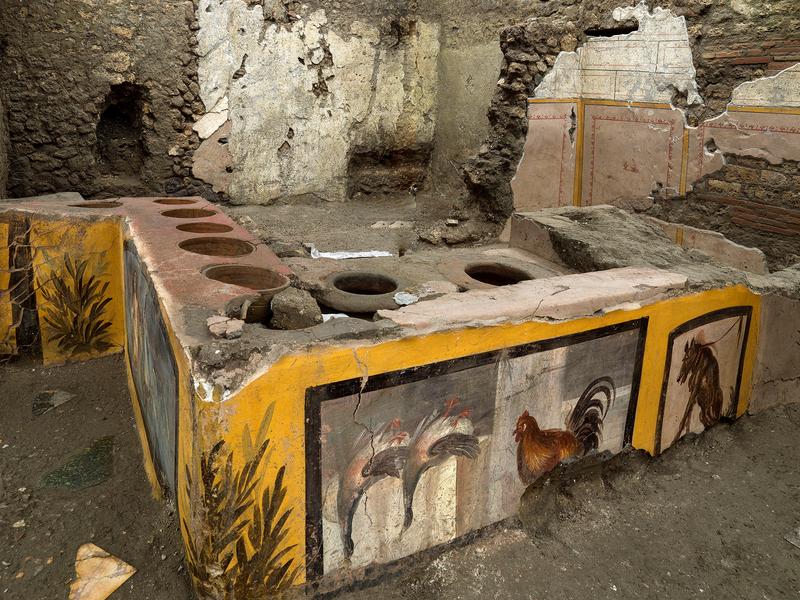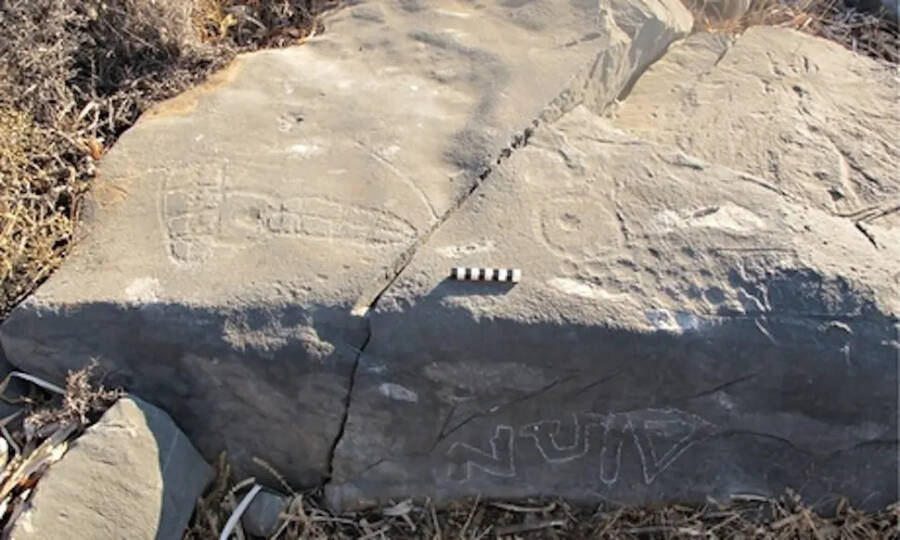For the first time, archaeologists have excavated an 'exceptionally well-preserved ancient snack bar' in Pompeii, giving a rare insight into Greco-Roman life.
Pompeii was buried in a devastating volcanic eruption in 79 AD. The city was home to more than 13,000 people before volcanic ash, pumice pebbles and dust buried it.
However, archaeologists continue to uncover new finds in the area.
Their latest discovery? A well-preserved ancient 'snack bar' that served up the ancient street food to Roman passersby.

Known as a termopolium, Latin for hot drinks counter, the shop was discovered in the archaeological park's Regio V site.
These termopoliums were popular in the Roman world. In fact, Pompeii alone had more than 80 of them.
Food Traces
While assessing the stall, archaeologists found traces of nearly 2,000-year-old food in some of the shop's deep terra cotta jars. Some of the food traces include pork, fish, snails, and beef.
According to reports, the vendors lowered the jars into the counter, which contained circular holes.
At the bottom of one of the jars, archaeologists also found crushed beans, which were used to modify the taste of wine.
The front of the counter was decorated with brightly colored frescoes.

These drawings depicted animals that were part of the ingredients in the food the shop owner sold.
Anthropologist Valeria Amoretti explained:
"Our preliminary analyses show that the figures drawn on the front of the counter represent, at least in part, the food and drink that were sold there."
Valeria added that the food traces were a 'testimony to the great variety of animal products used to prepare dishes.'
Archaeologists also found a fountain and a water tower. And inside the shop, they found nine amphorae, a bronze drinking bowl called a patera, and two flasks. They also found ceramic jars used for preparing food.
Human Bones
Human bones were also found at the site. According to researchers, some belonging to a 50-year-old man who appeared to have been in bed during the eruption.
Osanna said:
"The shop seems to have been closed [in haste] and abandoned by its owners. But it is possible that someone, perhaps the oldest man, stayed and died in the first phase of the eruption, during the collapse of the attic."
The other bones could be that of a 'thief' or a 'hungry fugitive surprised by the burning fumes with the lid of the jar he had just opened in his hand,' Osanna added.
The 'snack bar,' discovered in the archaeological park's Regio V site, isn't yet open to visitors.



